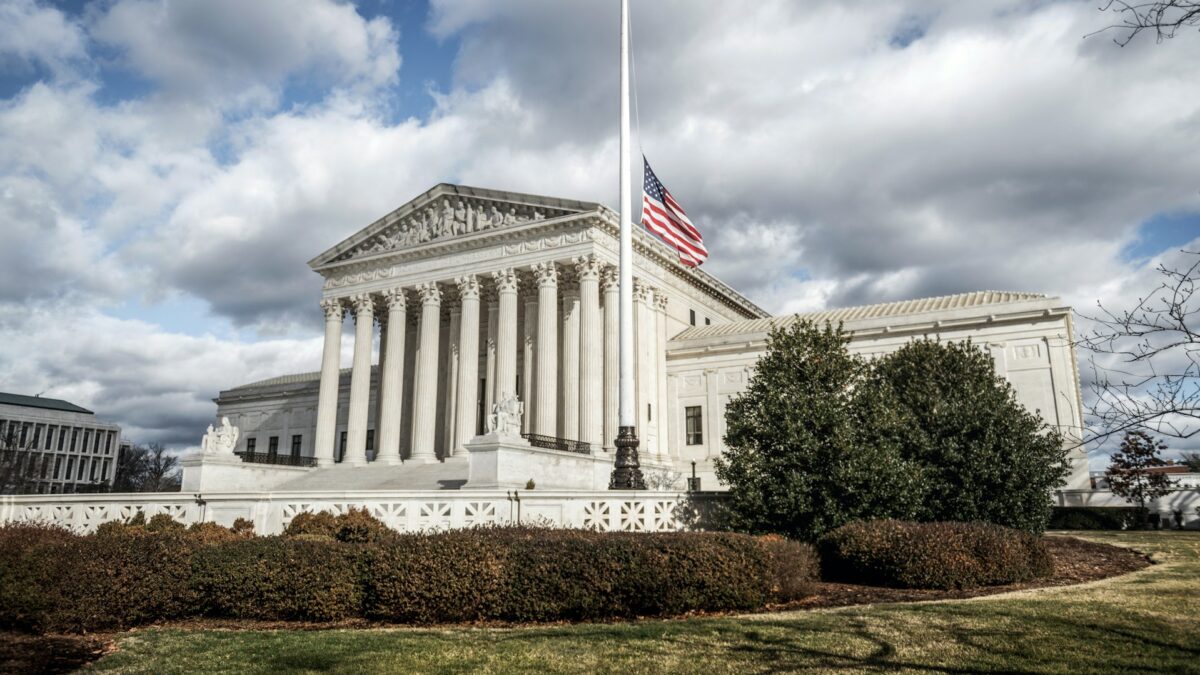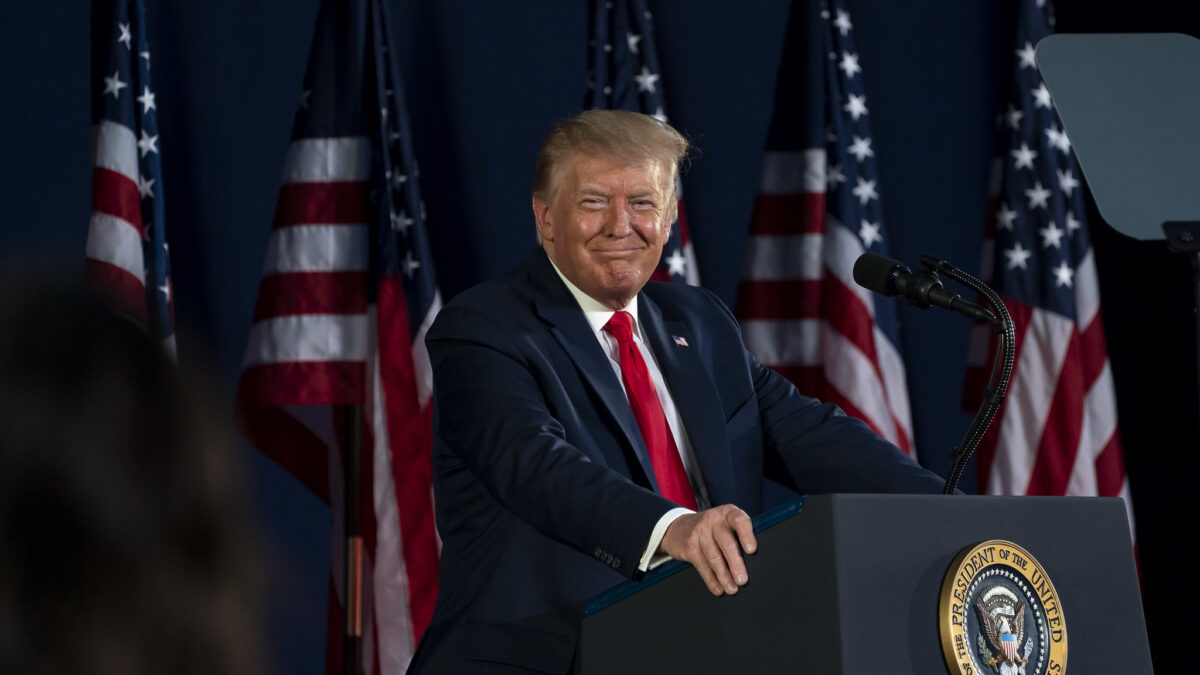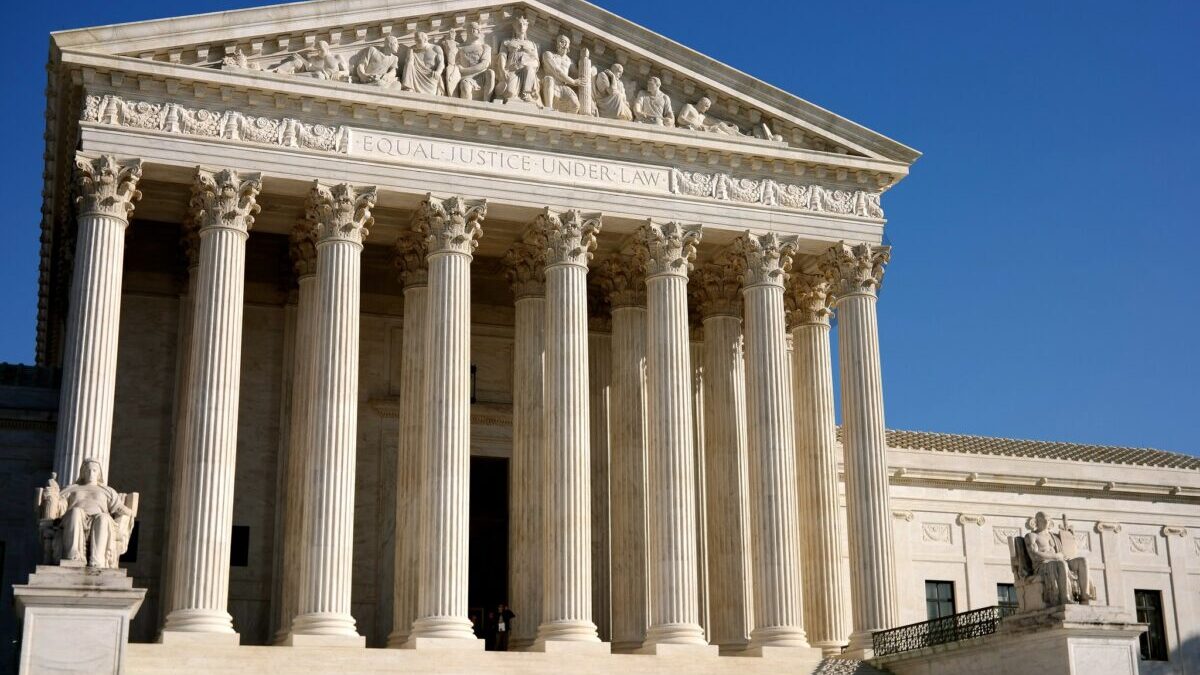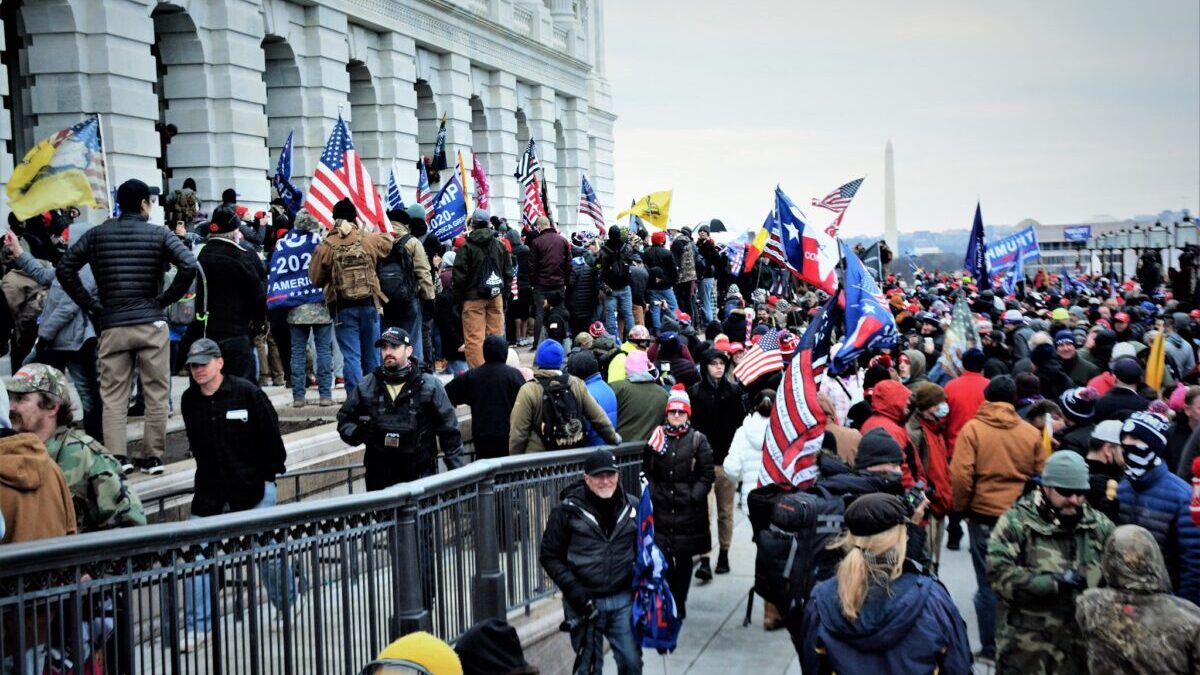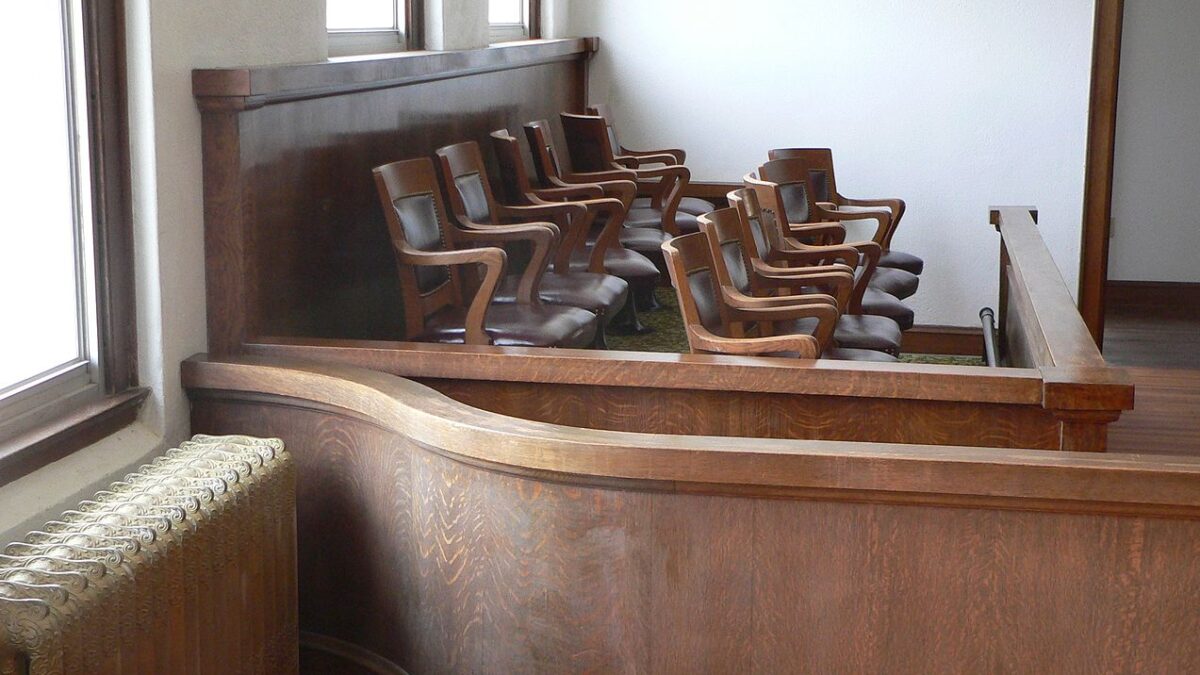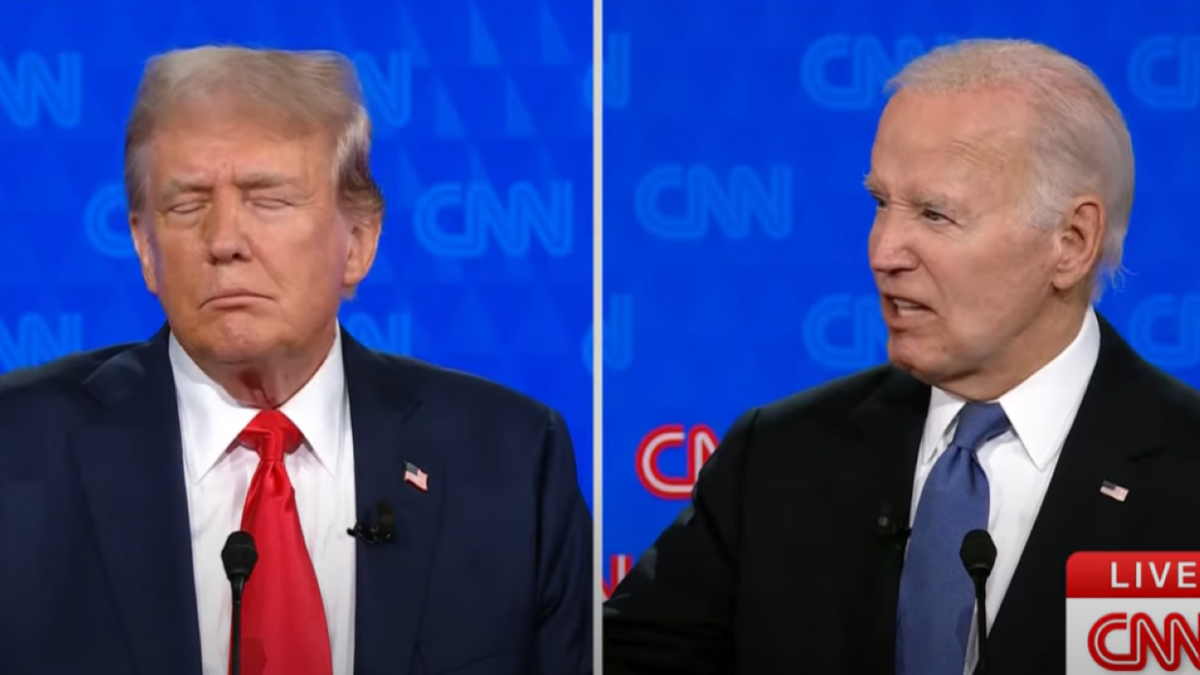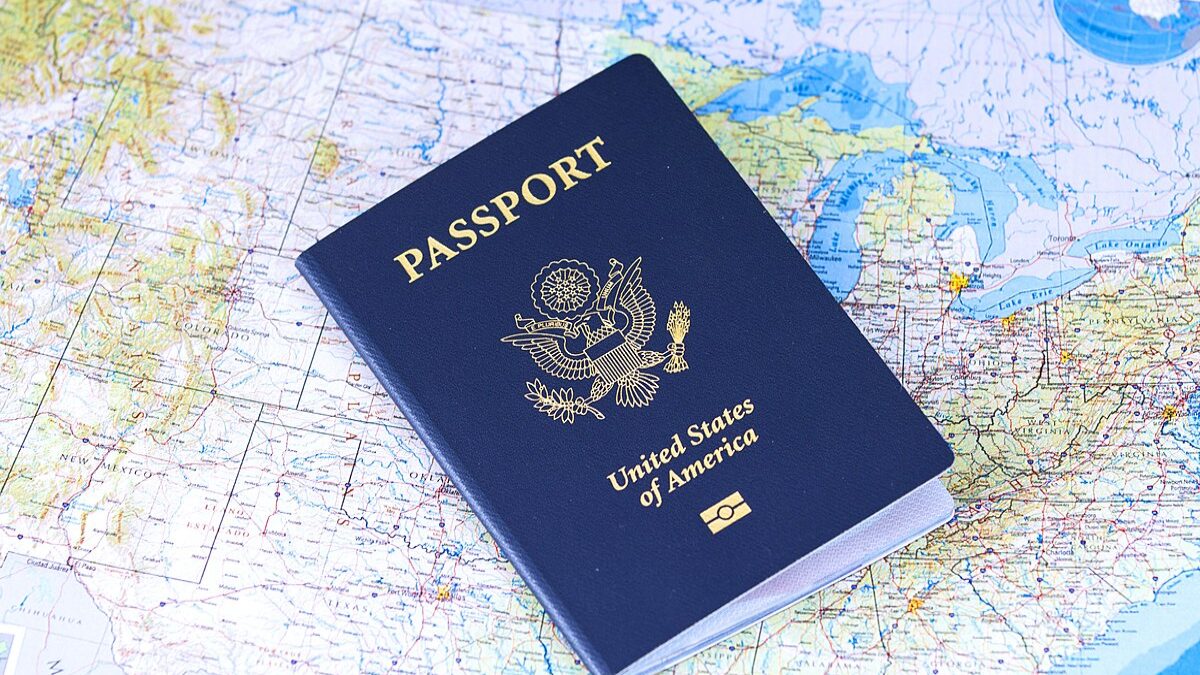Two federal judges enjoined portions of President Joe Biden’s latest student loan bailout scheme on Monday. Simultaneously, another federal judge heard arguments on the constitutionality of the appointment of Jack Smith as special counsel and prosecutors’ efforts to gag Donald Trump. Meanwhile, on Monday, Hunter Biden’s legal team filed three new briefs in the Delaware federal court where a jury recently convicted him on three counts related to his purchase of a gun.
The Supreme Court added to the busy legal news day by announcing it would hand down decisions from the remaining cases this term on Thursday and Friday, in addition to the previously scheduled Wednesday decision day. Here’s your lawsplainer for all these developments.
Student Loan Bailouts
Monday saw two different rulings freezing efforts by President Biden to “cancel” (i.e. make taxpayers pay instead) an estimated $150 billion in student loans. A Kansas district court granted a preliminary injunction in a case brought by 11 states: Alabama, Alaska, Idaho, Iowa, Kansas, Louisiana, Montana, Nebraska, South Carolina, Texas, and Utah.
Presiding Judge Daniel Crabtree ruled that the states had a likelihood of success on the merits of their challenge to the so-called “SAVE” plan, which the Department of Education adopted to cancel student loans for eligible borrowers. The court held that the Higher Education Act did not clearly authorize the Department of Education’s SAVE Plan. Judge Crabtree, however, refused to enjoin the entirety of the student loan bailout, limiting the preliminary injunction to those portions of the SAVE plan scheduled to go into effect on July 1, 2024. The court’s ruling thus does not affect the hundreds of thousands of student loans already forgiven under the SAVE plan.
A second federal judge, this one in Missouri, granted a different group of states a preliminary injunction enjoining the SAVE plan. In that case, Missouri, Arkansas, Florida, Georgia, North Dakota, Ohio, and Oklahoma likewise challenged the Department of Education’s forgiveness plan, arguing that the federal agency had exceeded its authority under the Higher Education Act.
Presiding Judge John A. Ross in the Missouri case agreed that the states were likely to succeed in their challenge that the Department of Education exceeded its authority in adopting the SAVE plan. The court, however, only enjoined the SAVE plan to the extent it forgave student loans, leaving in place the portions of the plan that lowered payments and limited interest accrual.
The Biden administration is likely to appeal in both cases, with the Kansas case going to the 10th Circuit and the Missouri case appealed to the 8th Circuit. For their parts, the states may also seek review by the federal appellate courts, arguing that the lower courts’ injunctions were too narrow and that the courts should have enjoined the entirety of the SAVE plan. In the meantime, the Biden administration is sure to seek a stay of the injunctions, which would allow the loan cancelations to take effect. A stay seems unlikely given that once the loan is forgiven it would be difficult to unwind the cancelations and that the Supreme Court has already slapped down Joe Biden’s earlier loan forgiveness scheme.
Stay or not, though, the SAVE plan provides a necessary carrot Joe Biden will wave to young voters in advance of the November election.
Special Counsel’s Office Faced Tough Questioning
Meanwhile, halfway across the country in Florida, the Office of Special Counsel Jack Smith appeared before Judge Aileen Cannon, the presiding judge in the presidential documents case. Two issues were before the court during Monday’s hearing: a requested gag order on Donald Trump and Trump’s efforts to dismiss the charges against him based on the argument that Smith was not constitutionally appointed.
At Monday’s hearing, Judge Cannon drilled the special counsel’s office on the need for a gag order. Smith’s team had claimed that Trump’s comments about the execution of the search warrant at Mar-a-Lago put FBI agents in danger. With no evidence connecting any of Trump’s statements to threats or actual violence, however, Judge Cannon seemed reticent about limiting what Trump could say about the case. She refrained from ruling on the motion, giving the parties until Wednesday to provide any supplemental information to the court.
Judge Cannon also heard arguments Monday on Trump’s motion to dismiss the indictment based on the allegedly unconstitutional appointment of Jack Smith as special counsel. This argument challenges the regulations that authorized Attorney General Merrick Garland to appoint a private citizen as a special counsel. Those regulations, Trump’s attorneys argued, cannot establish the federal office of special counsel because, under the appointments clause of the Constitution, only Congress can create such a federal office.
A bevy of constitutional scholars have supported Trump’s appointments clause argument, but given the lack of any supportive analogous precedent, Judge Cannon is likely to reject the former president’s challenge to Smith’s appointment. Trump will be able to advance the argument on appeal, however, and he is likely to seek immediate review by a federal appellate court of the issue — if she does in fact rule against him. At a minimum, that could delay this case for the foreseeable future.
Hunter Biden’s Gun Case Isn’t Over Yet
Monday also saw developments in the Hunter Biden criminal case in Delaware, where a jury convicted him earlier this month on three counts related to his purchase of a gun. While the jury found the president’s son guilty, he continues to press several legal challenges to his conviction.
Hunter’s legal team presented a new theory in another motion to dismiss on Monday. In this motion, defense counsel argued that the trial court lacked jurisdiction or the power to hold the criminal trial because the appellate court had yet to return the case to the trial court.
It is black letter law that when a case is appealed, that appeal divests the lower court of jurisdiction. In Hunter’s case, he sought review by the appeals court, which was denied. But after rejecting Hunter’s appeal, the appellate court, according to the defense motion, did not “issue a mandate,” which is the official way a case is returned to a lower court.
Because there was no mandate issued, the lower court did not have jurisdiction at the time it held the trial, the motion argues. And in that case, a new trial must be held, Hunter’s legal team asserts, citing as precedent a similar case.
Whether there is contrary precedent remains to be seen when Special Counsel David Weiss’s team responds. If not, Hunter may have succeeded in calling a mulligan.
Hunter’s legal team is also still pursuing other challenges to his conviction, including a Second Amendment challenge. So the jury’s verdict is far from the last word in this case.
SCOTUS to Issue a Flurry of Big Decisions
While the lower courts will continue to wade through the above issues for some time, the Supreme Court announced Monday that it will be releasing opinions on Wednesday, Thursday, and Friday of this week. There remain some very significant decisions outstanding, including Trump’s presidential immunity appeal.
Other decisions to watch include the companion cases of Loper Bright and Relentless, which both ask the high court to overrule Chevron deference — a judicially invented doctrine that forces judges to defer to agencies’ view of the law. Should the Supreme Court overturn Chevon, it will be a first step in reining in the administrative state.
Equally important in fighting the administrative state is the case of Murthy v. Missouri, which involves a First Amendment challenge to efforts by various federal agencies to induce social media companies to silence disfavored speech. The Supreme Court’s decision in Murthy will have widespread ramifications as the opinion will clarify when the government crosses the line in seeking censorship by third parties.
While these and the other remaining cases are all of great significance, the import of the rulings is heightened by Thursday’s debate, when Trump and Biden will likely trade jabs over the Supreme Court.
